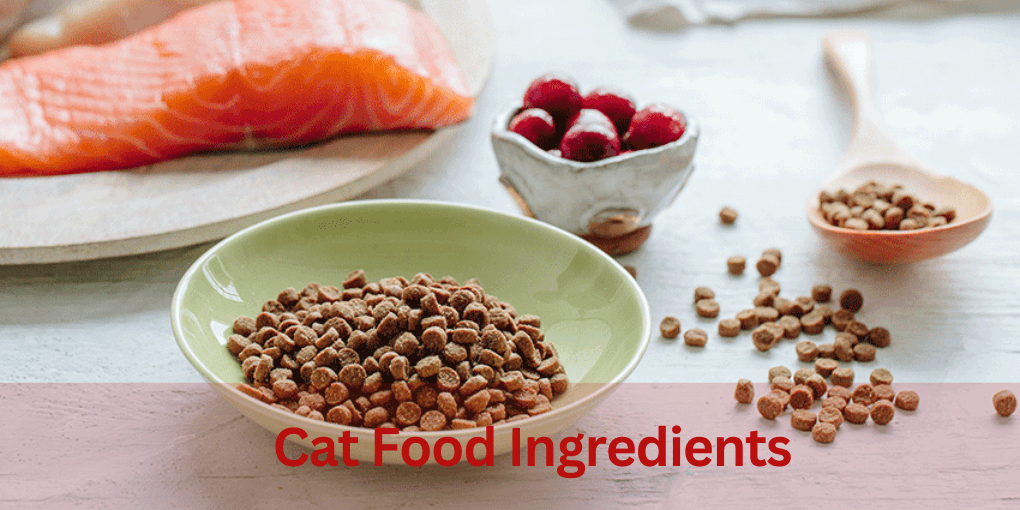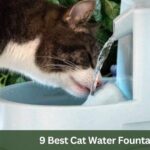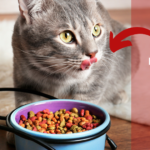Cats are known to be finicky eaters, but their nutritional needs are far from being picky. Choosing the right food ingredients for your indoor cats is crucial to ensuring their overall health and well-being.

With the numerous cat food options available on the market, it can be difficult to determine which ingredients are essential and which ones to avoid.
In this blog, we will discuss what to look for and avoid when selecting cat food ingredients for your indoor cats.
The Types of Cat Food Ingredients
As cat owners, it is our responsibility to provide our furry friends with the best possible diet.
Selecting the right cat food ingredients can make all the difference in the health, activity, and life longevity of our indoor cats.
With so many options available, it can be overwhelming to determine what to look for and what to avoid.
In this article, we will discuss the types of cat food ingredients to help you make informed decisions for your feline companion.
Protein
Protein is a crucial component of cat food. Cats are obligate carnivores and require a diet that is full of high-quality protein.
Look for cat foods that list real meat as the first ingredient and contain at least 30% protein. Avoid cat foods that have fillers, by-products, or unnamed protein sources.
Grains and Carbohydrates
Cats, unlike humans, do not require carbohydrates in their diet. In fact, overconsumption of grains and carbohydrates can lead to obesity, diabetes, and other health issues.
When selecting cat food ingredients, look for grain-free options that contain minimal carbohydrates. Avoid cat foods that contain corn, wheat, soy, or artificial preservatives.
Fats
Fats play a critical role in your indoor cat’s diet. They provide energy and help maintain healthy skin and coats.
Look for cat foods that contain healthy fats, such as omega-3 and omega-6 fatty acids, and avoid those containing unhealthy fats or artificial flavors.
Water
Water is an essential component of any cat’s diet. Indoor cats are particularly prone to dehydration, so it’s essential to provide them with sufficient water.
When selecting cat foods, look for those with high moisture content. You can also add wet foods to your cat’s diet to help increase water intake.
Common Cat Food Ingredients to Avoid
As a cat owner, it’s important to pay attention to what you’re feeding your furry friend.
Not all cat food is created equal, and some ingredients can actually be harmful to your cat’s health. Here are some common cat food ingredients to avoid:
Grains: While cats can tolerate some grains in their diet, they are obligate carnivores and require a high-protein diet. Grains like corn, wheat, and soy are often used as fillers in cat food and offer little nutritional value.
Artificial preservatives: Some cat foods contain artificial preservatives like BHA, BHT, and ethoxyquin. These preservatives have been linked to cancer in animals and should be avoided.
Artificial colors and flavors: Cats don’t care what color their food is, so there’s no need for artificial colors. Similarly, artificial flavors are often used to mask the taste of low-quality ingredients.
Meat by-products: Meat by-products are the parts of an animal that are not used for human consumption, such as organs and bones. While they may be high in protein, they are often low-quality and can contain harmful additives.
Carrageenan: Carrageenan is a thickener that is often used in wet cat food. While it is derived from seaweed, some studies have suggested that it can cause gastrointestinal inflammation.
Excessive carbohydrates: As obligate carnivores, cats don’t need a lot of carbohydrates in their diet. High-carbohydrate cat foods can lead to obesity, diabetes, and other health problems.
The Benefits of Natural Cat Food Ingredients
Choosing the right food for your cat is essential to keeping them healthy and happy. One aspect of cat food that you should consider is the ingredients.
Natural cat food ingredients offer several benefits that can positively impact your cat’s health.
- Improved Digestion: Since natural cat food ingredients are free from artificial colors, preservatives, and flavors, they can help prevent digestive issues such as diarrhea, vomiting, and constipation.
- Better Nutritional Value: Natural cat food ingredients are free from artificial additives. So they contain high levels of natural antioxidants, vitamins, and minerals. These nutrients can strengthen the immune system, improve your cat’s skin and coat, and enhance their overall health.
- Allergen-free: Artificial additives in some cat foods can trigger allergies or hypersensitivities. Natural cat food ingredients can be a good option for cats with food sensitivities or allergies.
- Better Weight Management: Natural cat food ingredients tend to be more nutrient-dense than those that are artificially processed. As they provide cats with a more balanced and complete diet, it can promote healthy weight management.
- Reduced Risk of Chronic Diseases: Natural cat food ingredients often have a low glycemic index, which can reduce the likelihood of chronic diseases like obesity, arthritis, and diabetes.
- Improved Dental Health: Natural cat food ingredients don’t contain artificial sugars that can contribute to tooth decay, which can lead to tooth loss, gum disease, and other dental problems.
- Supports A Balanced Diet: Natural cat food ingredients offer a balanced diet for cats, providing them with the nutrients they need to maintain healthy body functions, muscle growth, and organ function.
The Dangers of Allergenic Cat Food Ingredients
When it comes to cat food, what you feed your feline friend is important. While there are many options available to cat owners, some cat food ingredients can be allergenic and pose hazards to cats.
- Wheat and Gluten: Wheat and gluten are commonly found in cat food and are known allergens for cats. They can cause digestive issues like vomiting and diarrhea and can lead to skin irritation, itching, and hair loss.
- Soy: While soy is a good source of protein, it can be allergenic for cats, leading to skin problems and digestive issues.
- Dairy: Dairy products in cat food can lead to lactose intolerance or milk allergies, causing stomach upset and diarrhea.
- Corn: Corn is a common cat food ingredient. However, it can cause allergic reactions in cats that can lead to skin irritation, vomiting, and gastrointestinal issues.
- Artificial Flavors, Colors, and Preservatives: Artificial additives in cat food can trigger allergies and other health problems. These additives can disrupt feline hormones, leading to reproductive and immune system disorders and an increased risk of cancer.
- Fish: While fish is a protein-rich food source for cats, it can be allergenic. Some cats may be hypersensitive to fish and develop allergic reactions such as skin problems, vomiting, and inflammatory bowel disease.
- Meat By-Products and Fillers: Meat by-products are low-quality proteins or animal parts that are typically added to cat food or used as fillers to make the food more filling and less expensive. These ingredients can cause digestive problems and lead to allergies.
The Science of Cat Food Ingredients
The science of cat food ingredients is a complex and ever-evolving field. To understand what goes into your cat’s food, it’s important to understand the nutritional needs of cats and the role that different ingredients play in meeting those needs.
- Cat food ingredients can be divided into macronutrients (protein, fat, and carbohydrates) and micronutrients (essential vitamins and minerals).
- Protein is the most important macronutrient for cats, as it supports muscle mass and organ function.
- Fats provide energy and help keep the cat’s coat and skin healthy.
- Carbohydrates can provide some energy and fiber, but they are not as important for cats as they are for humans.
- Micronutrients, like vitamins and minerals, are necessary for immune system health, bone development, and vision.
- When choosing cat food, look for whole food ingredients like chicken, turkey, and fish, and avoid fillers like corn and soy.
- Choose a food appropriate for your cat’s life stage, whether they are a kitten, adult, or senior cat.
- Reading the label carefully is important to ensure the food provides balanced and nutritious ingredients.
- By providing a high-quality, balanced diet, you can help your cat live a long and healthy life.
Conclusion
In conclusion, understanding the science of cat food ingredients is essential to providing your cat with a healthy and balanced diet.
Cats have unique nutritional needs that require a diet high in protein and low in carbohydrates.
Choosing a high-quality cat food that includes whole food ingredients like chicken, turkey, and fish, can help to provide your cat with the necessary macronutrients and micronutrients.
It’s also important to choose a food that is appropriate for your cat’s life stage and to read the label carefully to ensure that it provides balanced and nutritious ingredients.
By providing your cat with a high-quality, balanced diet, you can help to ensure that they live a long and healthy life.
Read More Related Topics:

Patricia White is a pet enthusiast. With 10 years of experience in the pet industry, she brings a wealth of knowledge and expertise to MeToPet. She is honored to be a part of the MTP team and is dedicated to sharing her passion for pets with our readers.









